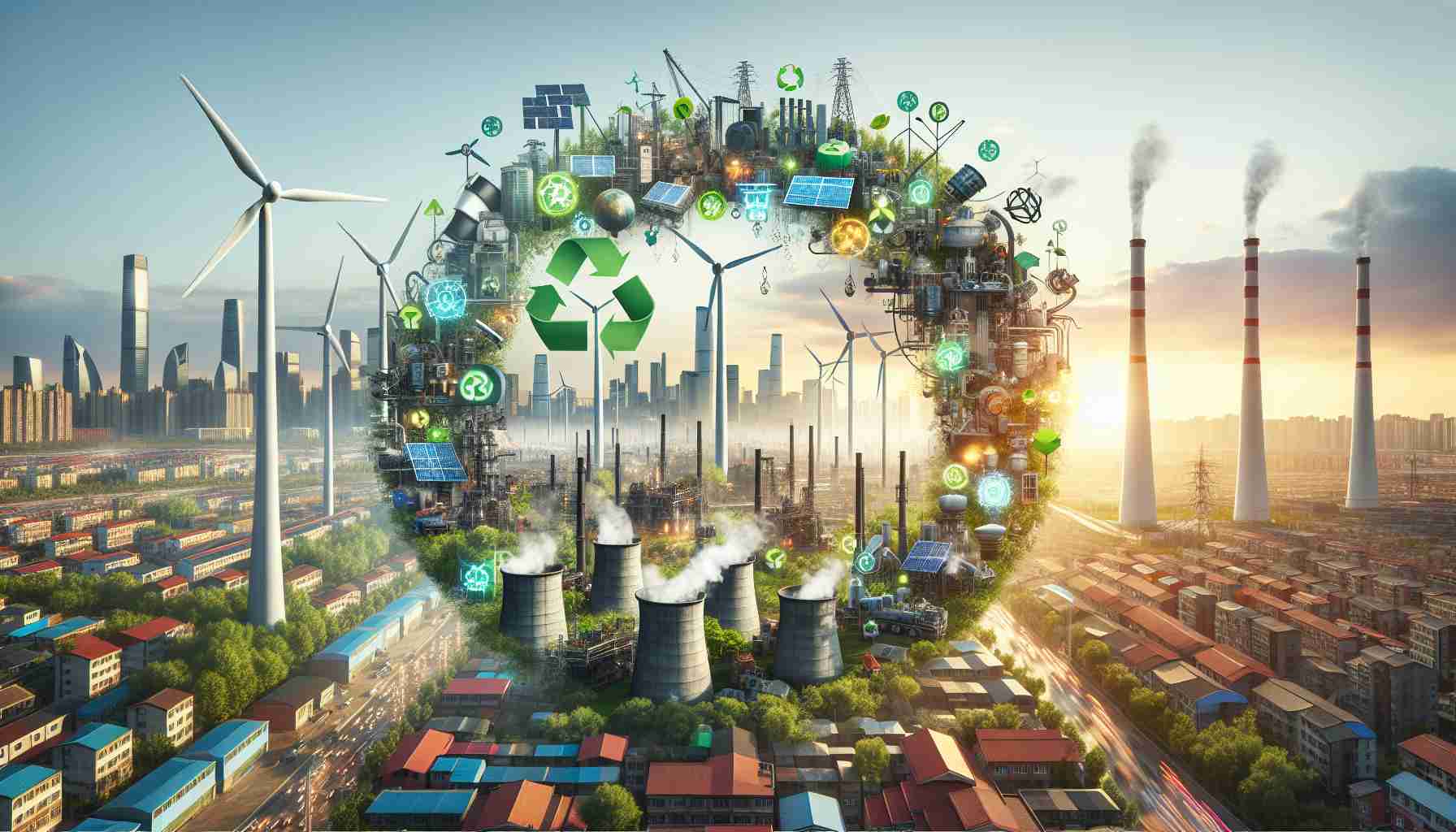Embracing Sustainability Through Recycling
China is making strides towards sustainability with an eye on establishing a circular economy where products are reused and waste is minimized. The Chinese government, aligned with corporate partners, is championing a transformative initiative to enhance recycling programs. They aspire to elevate electronic recycling and promote consumer goods trade-ins in an effort to reduce the associated logistics expenses and dynamize the domestic market.
Pre-loved Phones Find New Life
In contrast to the global decline in new smartphone sales, China is witnessing a surge in the demand for pre-owned smartphones. This uptick is a direct result of consumer preference for more budget-friendly solutions, a trend supported by a growing second-hand market ecosystem.
ATRenew Inc. at the Forefront of E-Recycling Innovation
Leading the charge in this green transformation is ATRenew Inc., an electronic recycling pioneer that has mastered the art of reprocessing millions of devices. Their success is propelled by their commitment to sustainability and a network of partnerships that allow them to extend their influence across various used goods markets.
Government-Driven Recycling Reforms
At a national level, the Ministry of Ecology and Environment has set forth regulations aimed at streamlining e-waste recycling. Acknowledging the treasure trove of precious metals in discarded smartphones, the government’s five-year plan has placed a strong emphasis on the salvaging and repurposing of these resources. To support these green endeavors, China focuses on carbon-reduction financing, fostering an eco-friendly mindset among its financial institutions.
Local Initiatives and International Collaborations
Taking charge locally, Shenzhen is piloting standardization projects for smartphone refurbishment, aiming to set the standard across the country. Concurrently, international groups like the Global Battery Alliance are playing their part to optimize battery life cycles, contributing to the global sustainability narrative.
Consumer Empowerment and Ecological Benefits
These collective actions are cultivating trade avenues for guaranteed quality pre-owned goods, thereby delivering simultaneous wins: environmental protection, economic prosperity, and consumer contentment from accessible second-hand alternatives.
The Circular Economy Framework in China
China’s push towards a circular economy reflects a growing recognition of the need for sustainable development. It also aligns with the global imperative to address climate change and resource depletion. In their 13th Five-Year Plan (2016-2020), China included the construction of a circular economy as a key component, and it continues to be an important strategy for the country.
Key Questions and Challenges
How to maintain economic growth while transforming towards a circular economy? This is a central question, as China seeks to balance its rapid economic expansion with environmental and resource constraints.
What are the technological challenges in recycling complex electronic devices? Ensuring that electronic devices are recycled in an eco-friendly manner requires advanced technological solutions.
How does China enforce regulations to ensure corporate compliance? Strong enforcement mechanisms are essential for the success of recycling reforms.
Advantages and Disadvantages
Advantages:
– Reduction in environmental pollution and resource depletion.
– Enhancement of energy efficiency and conservation.
– Fostering innovation and creating new business opportunities.
– Promotion of sustainable consumption patterns among consumers.
Disadvantages:
– Upfront costs for establishing recycling infrastructure and technology.
– Potential short-term economic trade-offs due to the restructuring of industries.
– Difficulties in changing consumer behavior and corporate practices.
– Risk of uneven implementation and enforcement across different regions.
Controversies
A significant challenge arises from the concern that materials may be improperly processed, leading to environmental harm rather than benefit. There are also concerns regarding the labor conditions in the recycling industry, particularly in less regulated sectors. Ensuring that recycling work is carried out safely and ethically remains an important issue.
Related Links
To learn more about global efforts in sustainable development and circular economy initiatives, you might want to visit the following websites:
– United Nations Environment Programme
– World Economic Forum
– The Ellen MacArthur Foundation
It’s worth noting that these are broad platforms with diverse resources on sustainability and circular economy, which include information on global initiatives and may provide comparative insights on how China’s efforts fit within the wider international context.
The source of the article is from the blog reporterosdelsur.com.mx
